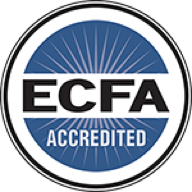In our ongoing communication about effects of the Affordable Care Act (ACA) on taxability and reporting of healthcare provision for most church employers, FCMM brings the following recent developments to your attention.
On February 12, 2015, the Evangelical Council for Financial Accountability (ECFA) presented a webinar that many churches viewed. This webinar explained issues for small employers and outlined “Five Roads for Healthcare Reimbursements.” Then, on February 18, the IRS issued Notice 2015-17, which added guidance and introduced changes from previous rulings and interpretations.
Following is FCMM’s summary of the current status as is best known. A group health plan obtained and provided by the employer is not subject to the taxability and penalty discussed here. Please note that FCMM presents current information that may change and may be subject to unique circumstances or interpretation. This information does not constitute legal advice. We recommend seeking advice of professional counsel where needed.
1. All employer payment plans are prohibited, with an exception (see #3).
An Employer Payment Plan (EPP), in which the employer reimburses or pays premiums for an employee’s individual health insurance policy, does not comply with several ACA provisions that took effect beginning in 2014 and may incur an excise tax penalty. However, last week’s Notice 2015-17 delays enforcement to July 1, 2015. (Previously, starting in 2014, an employer utilizing an EPP could be subject to a penalty of $100 per day per participating employee.) Late in 2014, the IRS introduced Form 8928 for employers to self-report violations.
Key Point: Employers should stop offering EPP arrangements as soon as possible, but certainly before July 1, 2015.
2. Increasing employee compensation in lieu of healthcare benefit is taxable income. Such compensation does not constitute a violation, but only if the increase is not conditioned on the employee’s purchase of health coverage. Any increase in compensation is to be reported by the employer as additional taxable income to the employee.
Key Point: Notice 2015-17 did not appear to relieve the taxable nature of increased compensation in lieu of health coverage since January 2014. Employers seeking to assist their employees should include the full amount as W2 income and should not specify that the increased compensation is to be used for health coverage.
3. One-employee exemption: A health plan funded by the church that has only one employee is considered exempt from the ACA requirements. It appears that employers in this situation can still reimburse the employee’s premium and that such reimbursement may continue to be a pre-tax benefit and not includible in W2 compensation.
Key Point: The one-employee exemption may allow a church to continue to practice the EPP as a tax-free benefit in this situation, but the church should remain alert for changing guidance.
4. Transition relief from excise tax penalty: As described in #2, Notice 2015-17 frees small employers from the excise tax penalties for EPP plan failures from January 1, 2014, through June 20, 2015. Self-reporting on Form 8928 is also waived for that period. We reiterate that this relief applies to the excise tax and does not appear to change taxability of the benefit.
Key Point: The small employer will not be required to file Form 8928 and pay an excise tax penalty for a non-compliant arrangement prior to July 1, 2015. The IRS considers this relief to be sufficient for employers to bring their practices into compliance.
Since all churches employing fewer than 50 people are affected by these developments, FCMM will continue to post updates as they become available.

